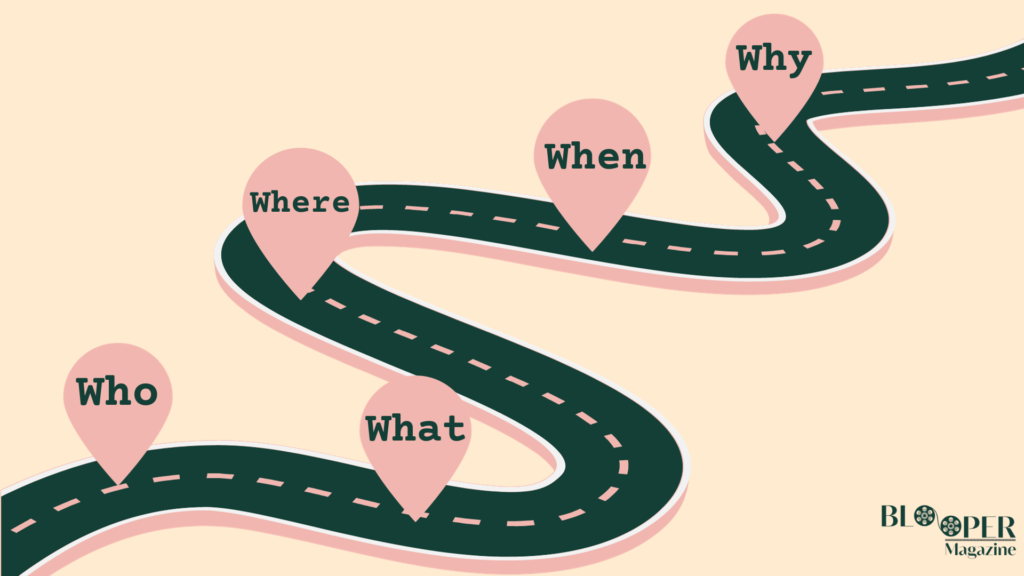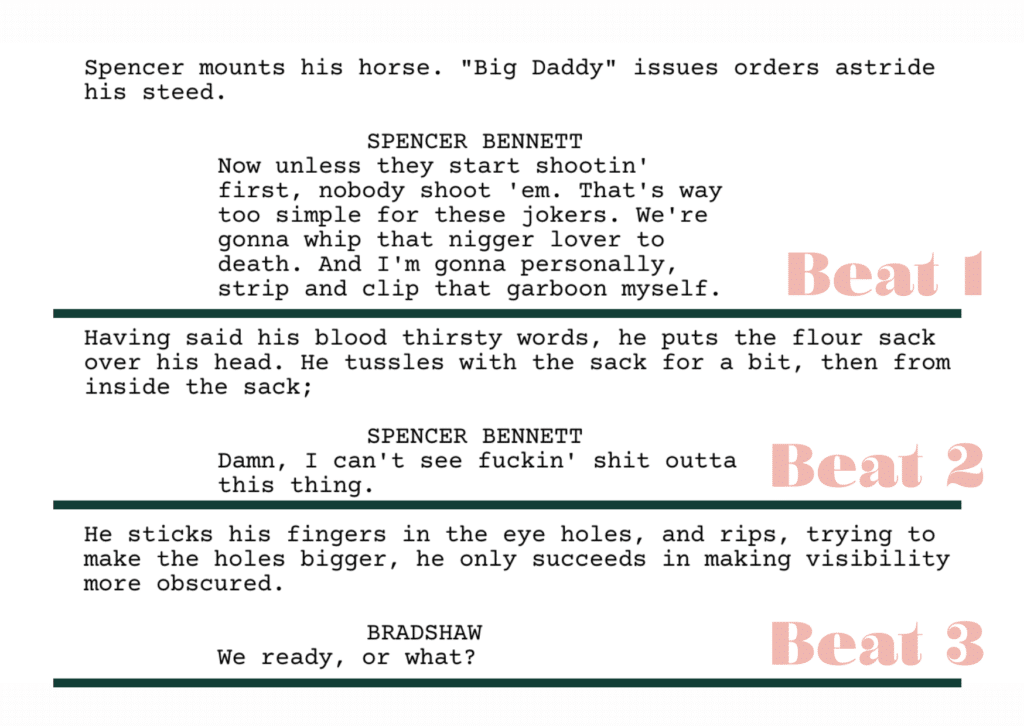Script analysis is one of the most important tools an actor can utilize when working on a role. Learning how to analyze a script will connect you to the writer’s meaning, and inflame your own imagination. Digging into your script can help to improve your work and make informed decisions.
Whether studying or learning how to act from home, script analysis is one of the most important skills to gain as an actor.
These are some of the best tools you can use in order to break down a script and set a firm foundation on which to build your character.
Find the Facts
One of the first things you can do when analyzing a script is to find the facts of your character and their relationship with others. We can do this by answering three simple questions. These are:
- What does the character say about themselves?
- What does the character say about others?
- What do others say about the character?
Go through the entire play and answer each of these questions. It may help to lay it out in a table or in separate columns so you can see all the information clearly. This can help you understand your character more deeply, as well as their place in the story.
Figuring Out The Given Circumstances
A great way to start your in-depth analysis process is to figure out the given circumstances. This process should be done for each scene to establish the setting for your character. One of the best ways to do this is to answer the 5 W’s – Who? Where? When? What? Why?

Who am I?
Respond to this question in as much detail as possible. This can include information about your job, where you grew up, your interests, your friends, and your beliefs. Include anything that makes the character who they are. Scour the script for any information about who your character is and make a note of it.
Where am I?
You should think of this question both broadly and in detail. Look for any information in the script about where you are – both in the play overall and in the specific scene you’re working with. This could be as broad as the country you’re in, or as specific as saying that you’re lying on your bed in your bedroom. Referring to stage directions can be helpful here. All information about your location is important and can inform your character.
When is it?
This is another important question alongside where to figure out the world you’re in. Again, this can be both broad and specific. Figure out the time period and year – is it 1867, the Victorian era? Or is it 2015? This can give you lots of information about the life your character lives.
You should also figure out the season and the time of day. They can impact things such as your character’s comfort level, their energy levels, and their level of tension.
What do you want?
One of the most important things for an actor to figure out in script analysis is what their character wants. This is also called their objective. You should figure out their superobjective – what they want over the entire play.
You should also figure out their objectives for each scene. These should all support their ability to achieve their super objective. Try to be as specific as possible, and think about what you want from the other characters in the scene.
Why do you want it?
Finally, you must ask yourself why the character wants what they want. This will give you the basis for all your motivations throughout the play. For your super-objective, this may have something to do with your character’s background, history, and what caused them to want what they want for their life.
For your scenic objectives, think about your relationship with the other character/s and what you stand to lose or gain from them.
Breaking Your Script Into Beats Or Units

Breaking down your script into beats (also called units) is a great way to break your script down into more manageable chunks. It can also help you to identify where the shifts in tone and energy are for your character and within the story.
Firstly, look for any significant changes in the scene. This could be other characters entering or leaving the scene. This could be a change in conversation topic. It could also be a change in emotion. Anything that causes a shift in the overall tone of the scene should be marked in your script as a beat.
Practice by downloading a free movie script from Studio Binder and breaking it down into beats.
Figuring Out Your Objectives
As explored previously, you figure out the character’s objectives by asking yourself what they want. You should do this for each scene, and make sure to think about what you want from the other character.
You should also think about your counterobjectives. These are other goals that may be counter to our original objective. For instance, Macbeth’s objective may be to “Dissuade Lady Macbeth of their plan to kill Duncan.” and his counterobjective may be to “Keep Lady Macbeth happy.”
Finally, here we can think about obstacles. This is anything and everything that gets in the way of the character achieving their objective. Figuring out what gets in the way of your character’s objective will raise the stakes and give the scene a sense of urgency.
Actioning Your Lines
In order to achieve their objectives, the character must act or use certain tactics. We can do this by breaking down the text even further. To action our scripts, we must assign a transitive verb to each line. Make sure to write your action next to each line in your script.
A transitive verb is a verb that has an object – something or someone else to direct the action to. To make sure we are using transitive verbs, we can make sure to use our character’s name after the verb. So, we can say “I challenge Jack.” or “I charm Jack.” and know that we are using transitive verbs. Just remember that each line you say has to affect another character in the scene. Check out this video to learn more about transitive verbs:
Significant Words
We can then begin to analyze the text even further by underlining significant words in the text. Underline any that jump out at you and feel significant to you or the overall play.
Any words that have an impact on you as you read the script are also important. Ask yourself why the character uses the words that they use. Also, ask yourself why the playwright has decided to use these words. All of this will develop your understanding of the script.
Punctuation
Punctuation can also give us significant clues about the story and our part in it. They can tell us about the mood of a scene, the character’s mindset, as well as the rhythm and tone of the scene.
This can be especially helpful when working on a Shakespeare text, and you can learn more tools to do this in the Blooper post on How To Memorize Shakespeare Lines. Circle any punctuation you find in your script so that you can mentally take note of it and allow it to impact your performance.
The Last Word On How To Analyze A Script
Script analysis is a crucial skill to have as it can really influence the decisions you make about your character and the creative choices you make during the character development process. These tools will help you make simple and compelling choices.
Knowing as much as you possibly can about your text and your character will enable you to create impactful work. This way you can build confidence, make bold choices, and communicate the story in an effective and powerful way.
Frequently Asked Questions
How do you start a script analysis?
Some of the best ways to start a script analysis are to figure out the facts in your script and to figure out the given circumstances of the scene. These are the building blocks that the rest of your work will be built off
How do you analyze a script for an audition?
Make sure to read through the entire script so you are able to understand it fully. Then, you can use all the tools discussed in this article, including figuring out the facts of the scene, the units, your objectives, obstacles, and actions.
What should a script analysis look like?
There is no specific way a script analysis should look, it’s really what works for you. Many actors will work directly on their script, noting their objectives and actions next to the lines in order to link the two together and have all information in a convenient place.
You may wish to get a notebook and keep your research and analysis in there or draw a table on the flip side of your script and record information there.
